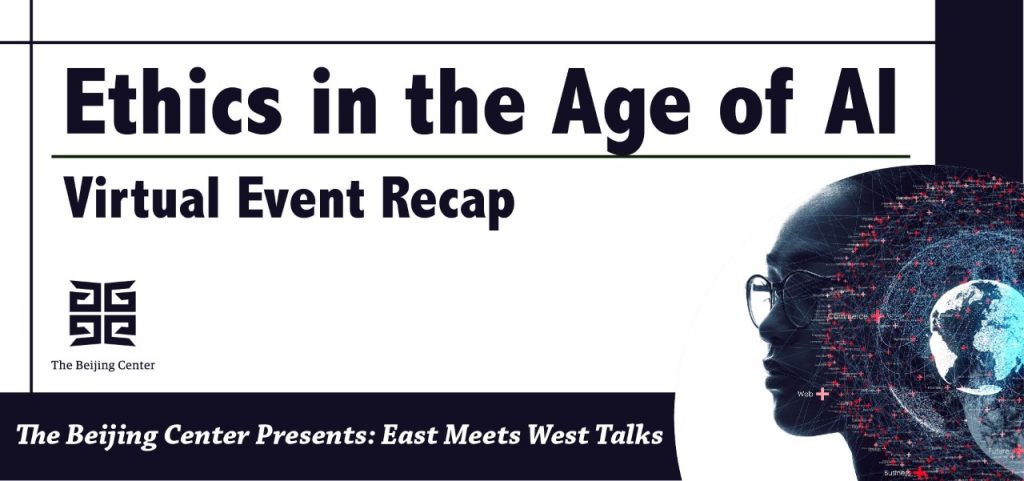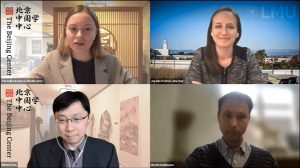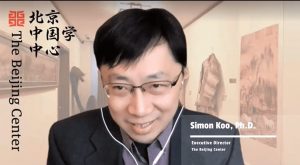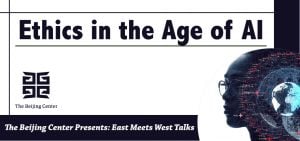
Ethics in the Age of AI – Virtual Event Recap
On 5 November 2021, The Beijing Center (TBC) was proud to have three speakers shared their critical opinions on our online event, “Ethics in the Age of AI”, as a part of the “East Meets West Talk” series. Against the backdrop of the emergence and development of artificial intelligence (AI), this event explored the intersection of AI, morality, and ethics within cross-cultural perspectives. Read more below or watch the full event recording here.

Dr. Simon Koo, the executive director of TBC, believed that AI was a combination of statistics, algorithmic decisions, and mathematic modeling. Even though AI was helpful in people’s daily life, he argued that today’s AI (artificial intelligence) may still be IA (intelligent assistance), meaning that AI was still merely imitating human intelligence at the cognitive level, not engaging deeply and creatively. He quoted “stop calling everything AI” from machine-learning pioneer Michael I. Jordan to support his statement. He further explained that it was still in human beings’ hands to decide the development of AI, but we could “let AI test the water”. In other words, in some fields that humans did not know how to act ethically, it may not be a bad idea to allow AI to explore. Besides, he left room for us to consider the boundary of AI – whether AI can do anything which was not prohibited by the law, or they must not do anything unless it was mandated by the law.

Dr. Jordan Freitas is an assistant professor of Computer Science at Loyola Marymount University, focusing on collaborative data management systems and data privacy. She also agreed that AI was shaped by humans who have stereotypes. Thus, people who program and design AI should make ethical value judgments and consider who would be the stakeholders after the decisions were made. Furthermore, she brought the concept of “notice and consent” on the table, highlighting the importance of data protection and privacy regulation after the emergence of AI.

Research associate Moritz Kuhlmann, S. J. from TBC also inspired us by questioning what were the ethical guidelines for human beings dealing with AI, and what kinds of ethical guidelines that AI had to follow. He then shared his ideas on AI from a socialist perspective, and highlighted the crux of addressing the problems of AI was in handling its ownership. Last but not least, he argued that different countries should learn from each other when dealing with issues about AI and big data. As China was playing a more active role in regulating the use of data, Western countries which generally prioritized self-regulatory system could learn from China’s governance model, and vice versa. Hopefully, the whole world could strike a balance between the merits and shortcomings when utilizing data.

At the end of the event, three speakers further explored what was the basic dynamics driving us discussing AI-related problems, be that the hidden fear of humans or positive hope for the future. And they kindly shed light on students’ questions, including the contribution of AI to ESG (environmental, social and governance) issues. Given that AI and big data were not ideologically neutral scientific knowledge that drives economic development and social change, this event did encourage us to think more critically about AI.
East Meets West Talks
The Beijing Center’s event series, covering a variety of intercultural topics that promote an exchange of ideas between East and West. These events bring together sharp minds and fresh thinkers who offer insights on current global affairs and challenges, cross-cultural engagement, and ideas that help us make sense of the world we live in.





